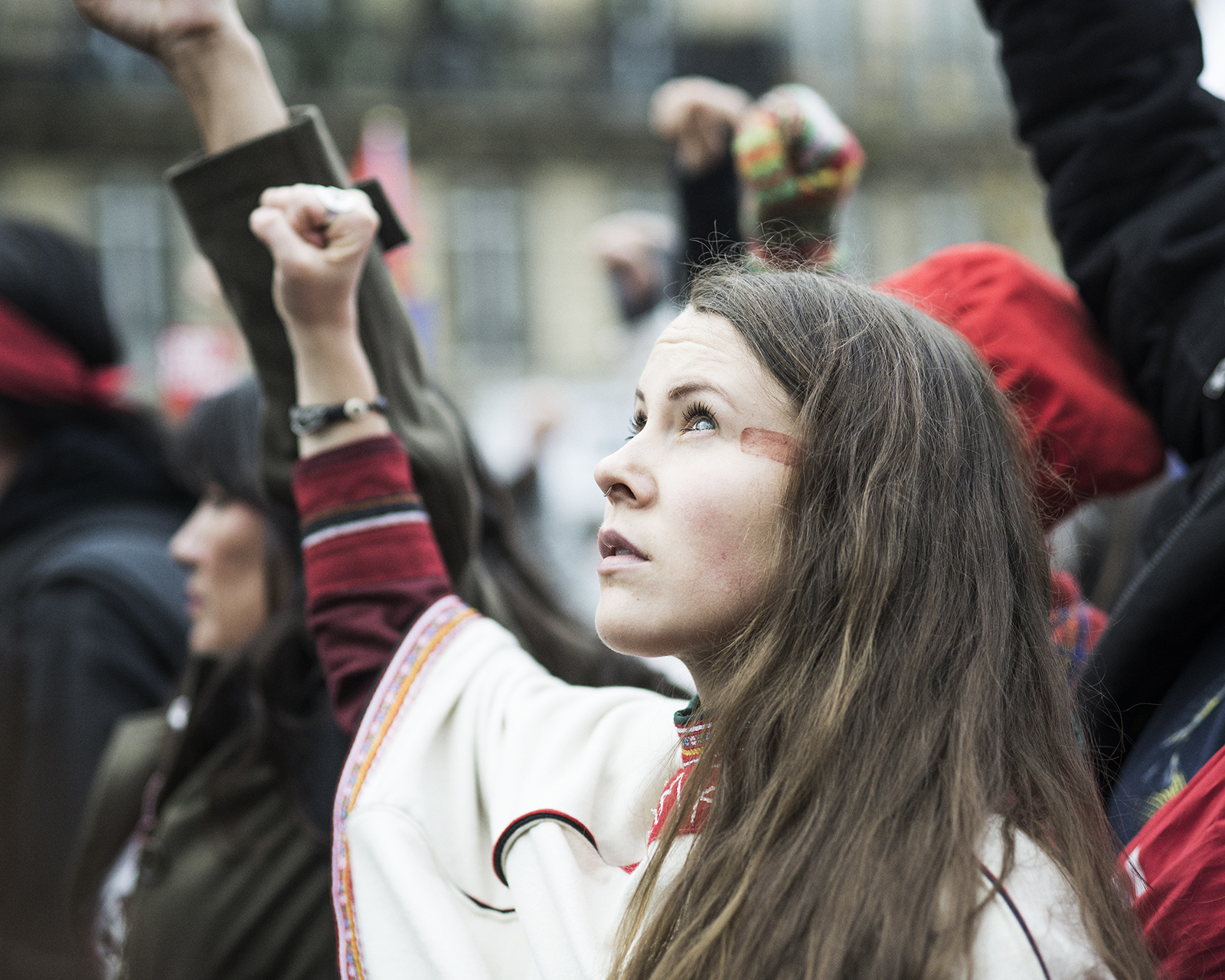
Sarakka Gaup: “In Paris I have met indigenous people from all around the globe who are crying out, shattered, and struggling for their lives. We are the first ones to go if the climate crisis keeps rising,” Sarakka says. She joined a protest in Paris to include the rights of indigenous people, including the Sami.
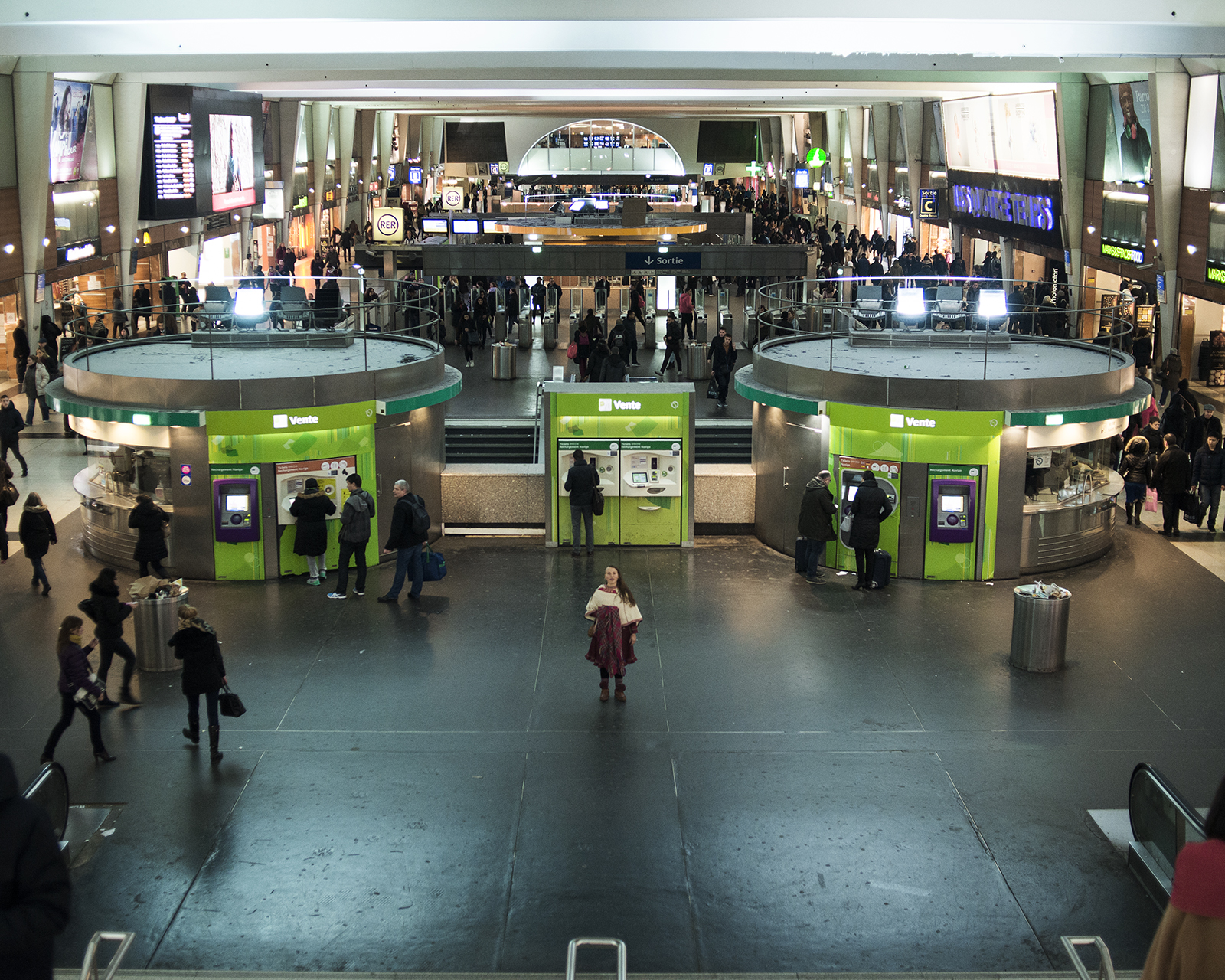
The Sami intended to drive a bus from Sweden to Paris until security tightened after the terror attacks on November 13. After the incident, some Sami were too afraid to travel to France, choosing instead to march in the climate protests in England. But others were still determined to attend the Paris talks.
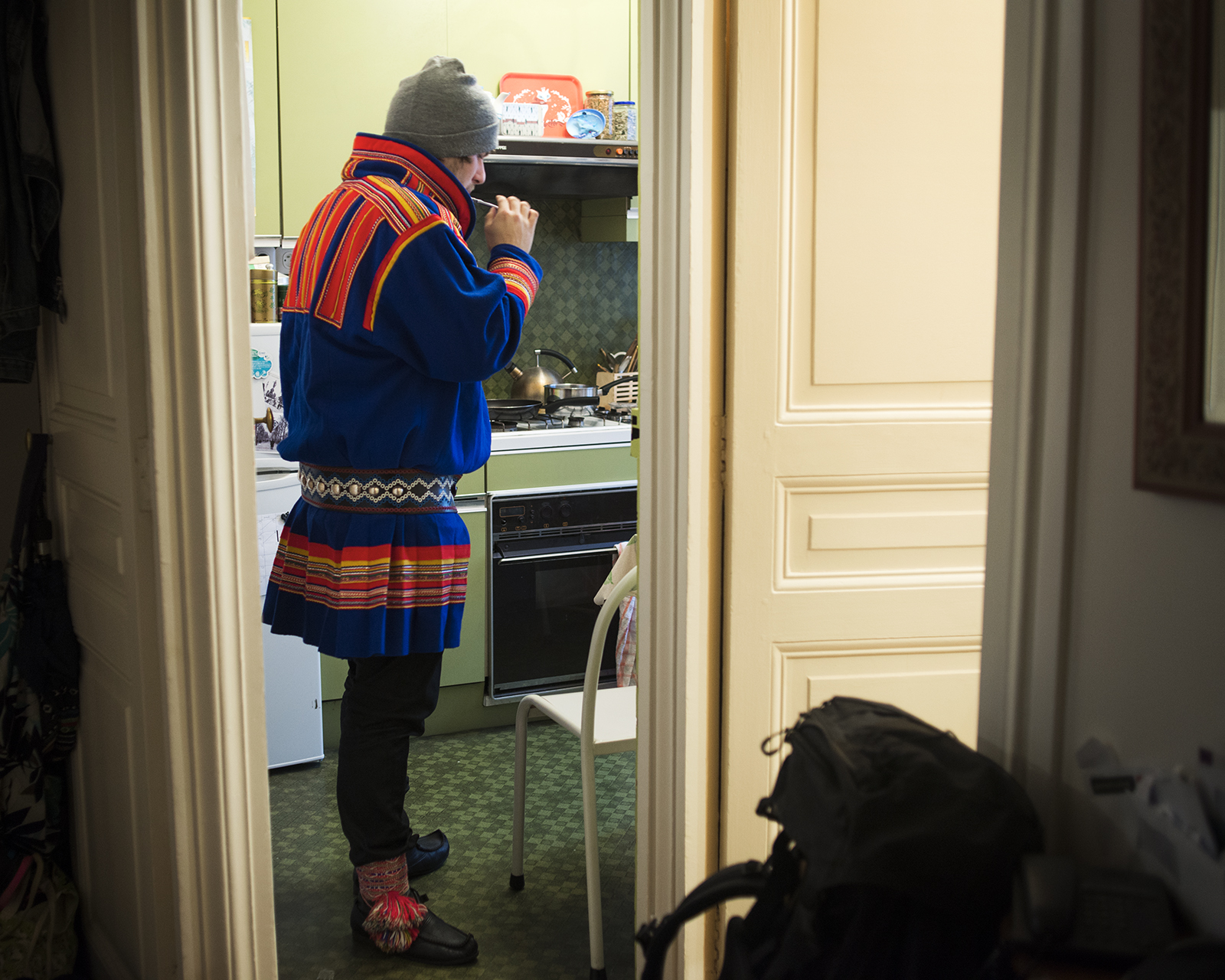
Juvva brushes his teeth in the kitchen as he prepares for a long day in Paris.
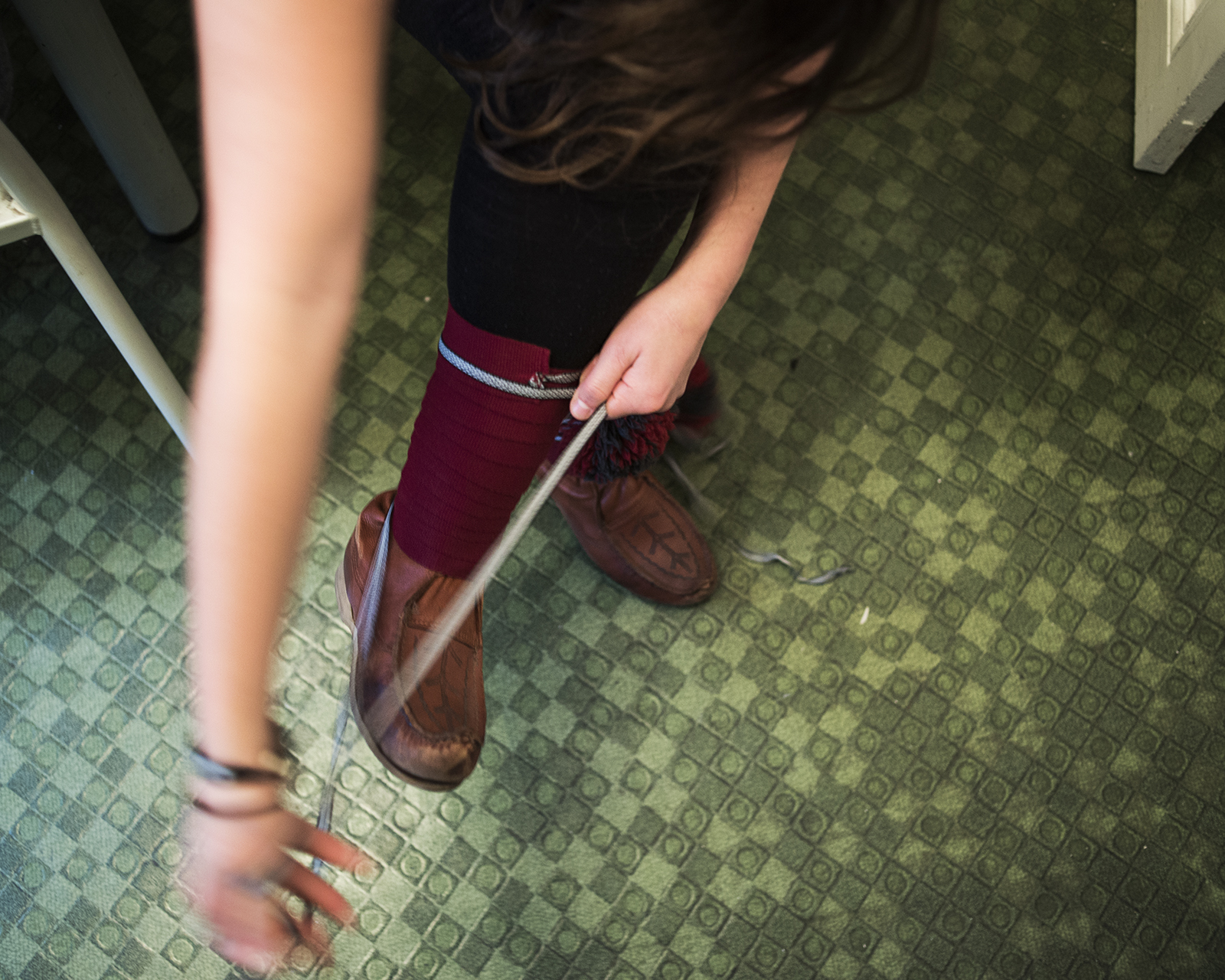
Sarakka dressing up for a day at the climate talks in Paris. Sarakka and her Sami friends took pride in wearing their traditional dress, called gákti, to represent their heritage in France. Sarakka's father is from Finnmark, the ancestral Sami lands in the northern part of the country, but she grew up in her mother's native Oslo.
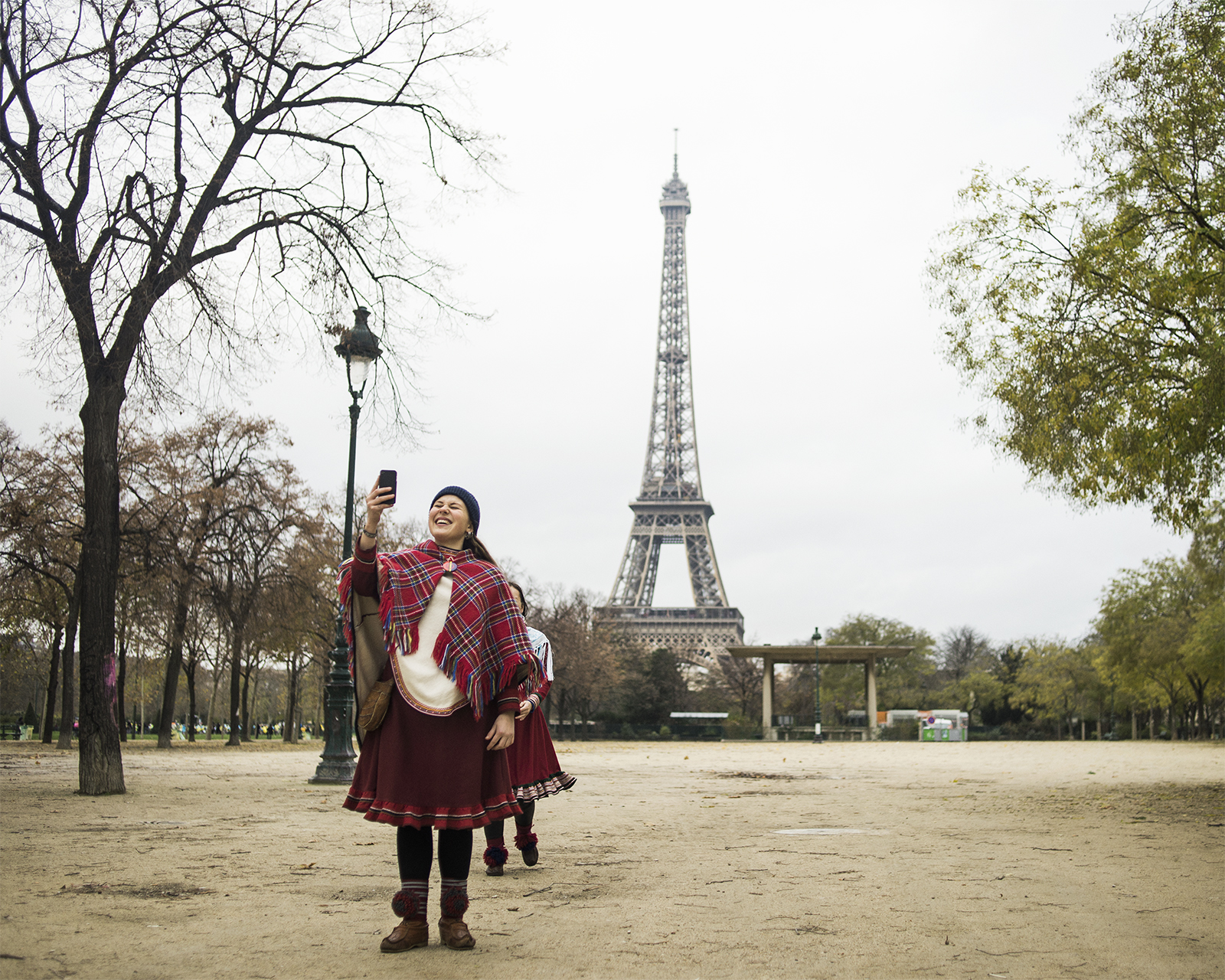
Sarakka taking a “selfie” in front of the Eiffel Tower. This was her first visit to Paris.
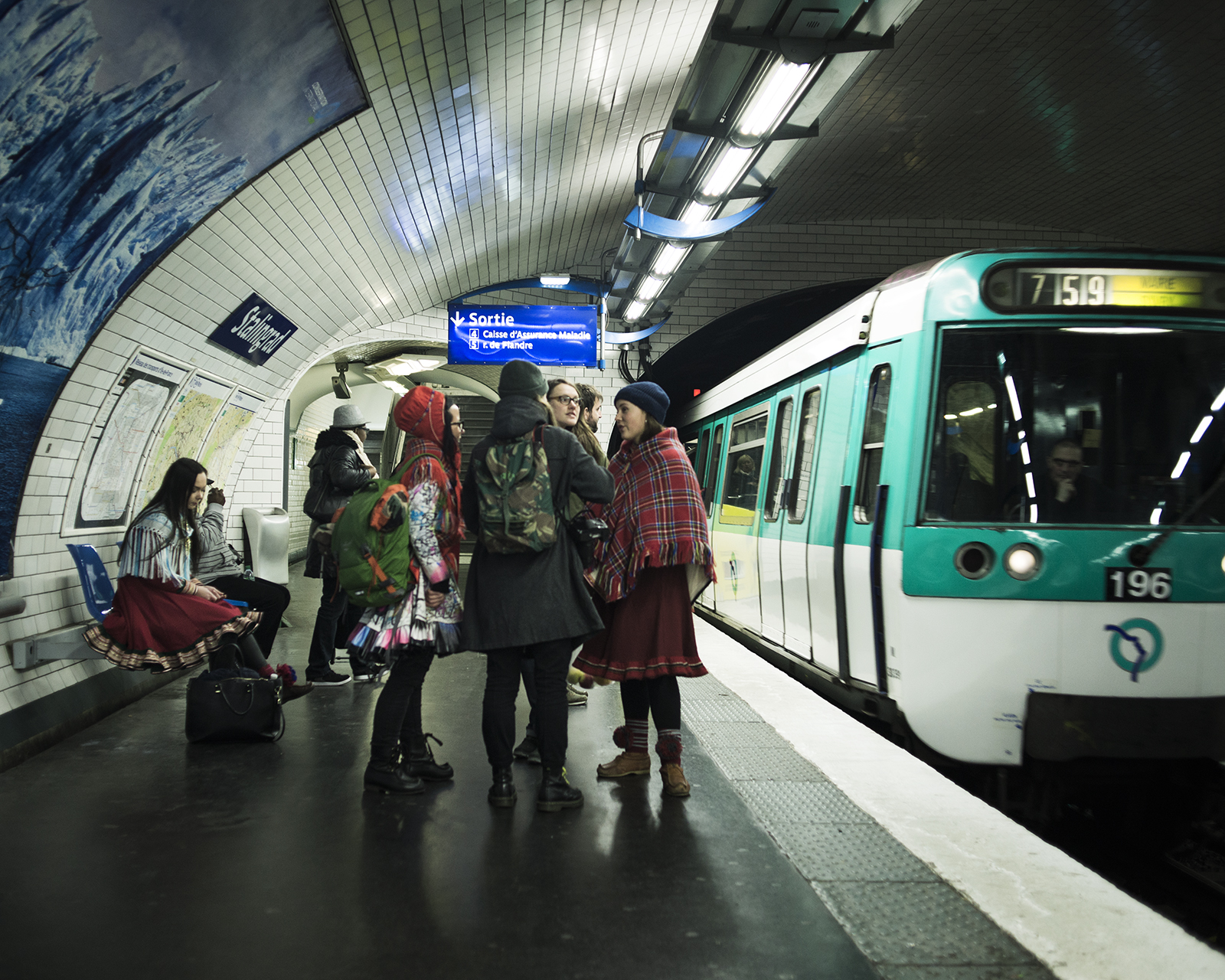
Although Sarakka's father is Sami, her mother is not, and Sarakka finds herself balancing between these identities. «I see myself as an activist just by being and living as I do—just the fact that I am from a minority group, and carry a very traditional Sami name, and have two cultures, two mother tongues,» Sarakka says.
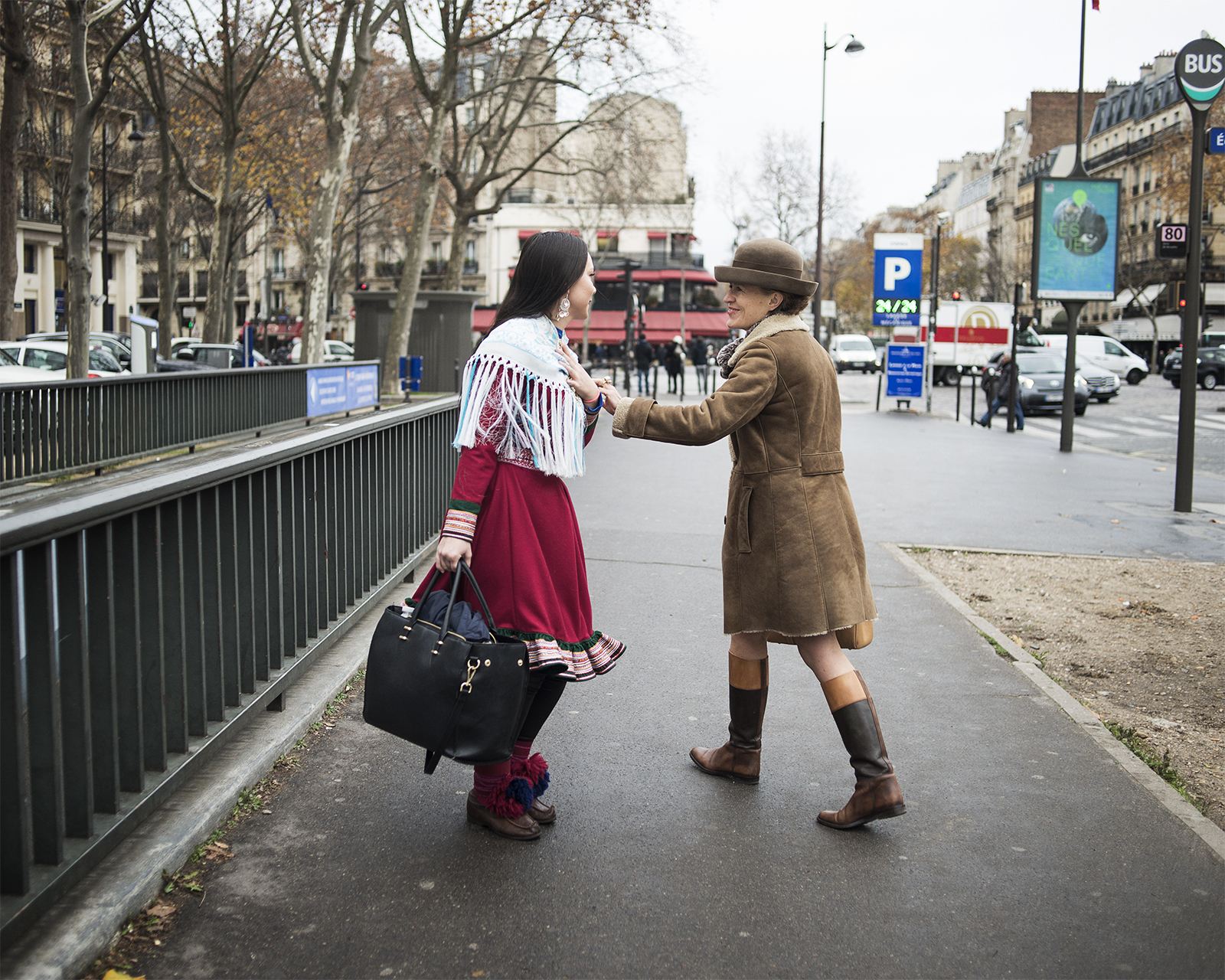
Anne Karen, a Sami from Norway, asks for directions outside the Paris metro. She grew up in a family of reindeer herders in Norway's far north, and she is fascinated by other cultures.
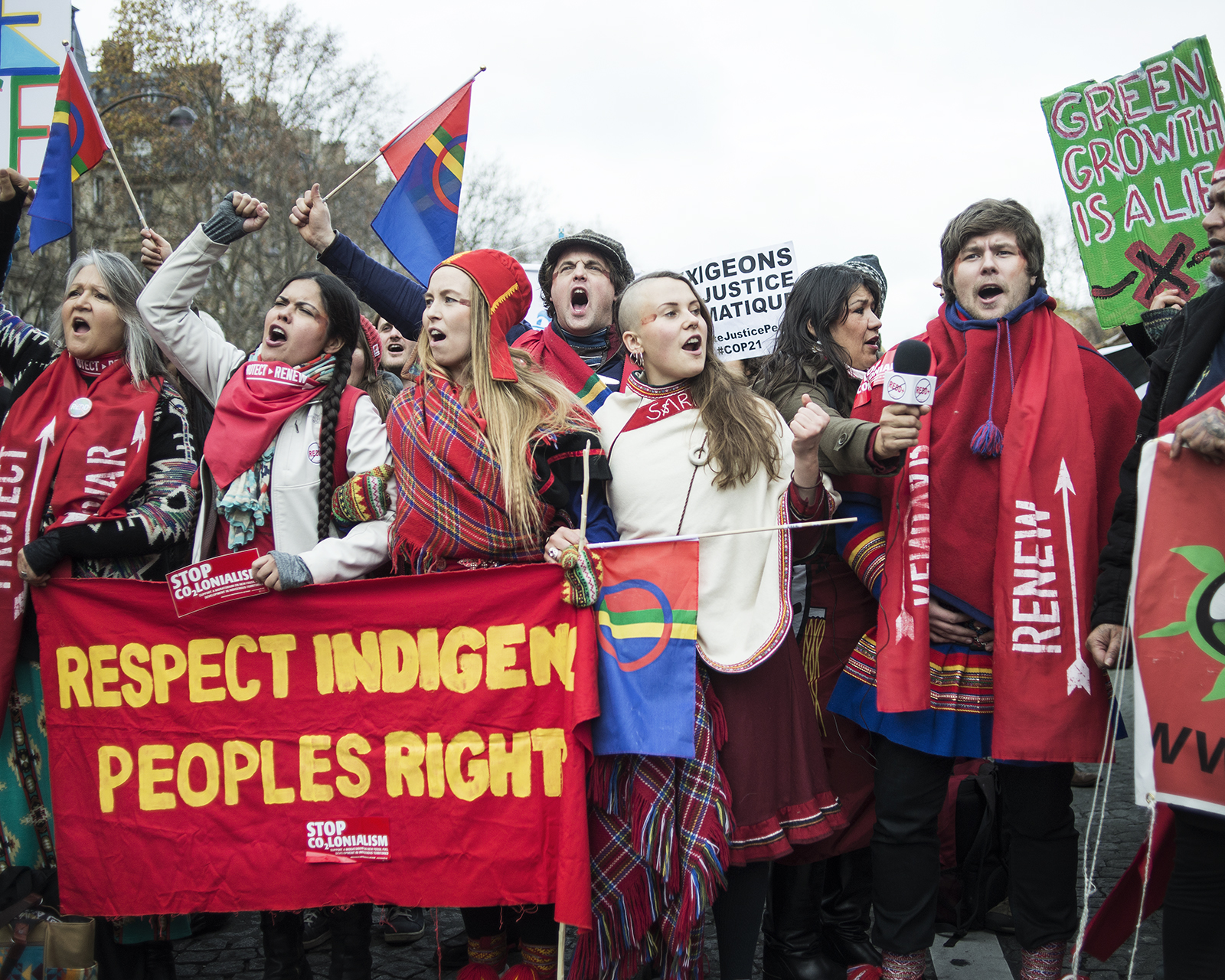
Sami youths rally at a demonstration to support the inclusion of indigenous rights in the Paris climate agreement. The Sami were afraid of further violence after last month's attacks in Paris, and they were concerned when the marches they'd planned on attending were cancelled after France declared a state of emergency.
«It was difficult. But we are happy with what we've achieved,» says Max, center. «We're really quite numerous and well represented here.»
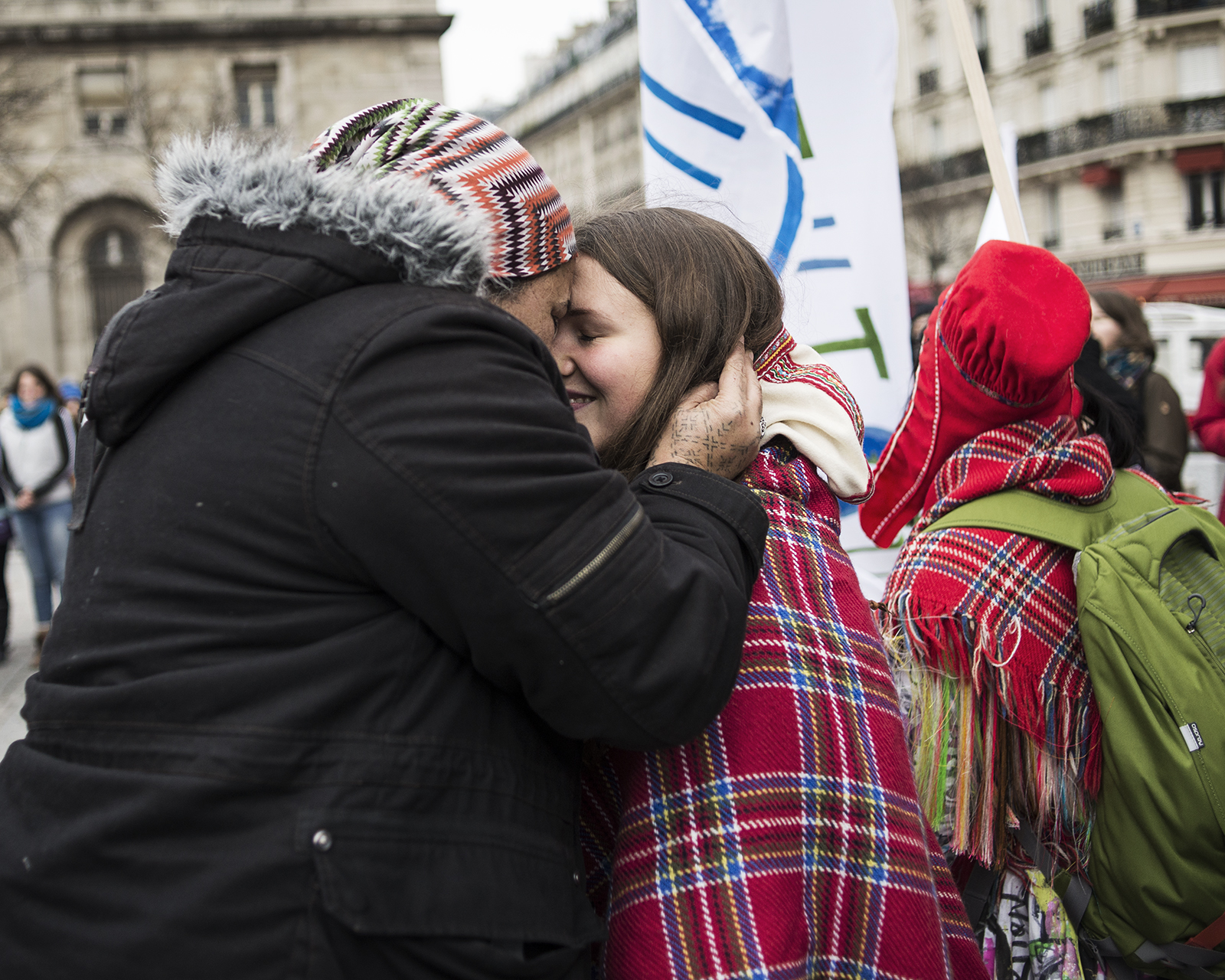
Sina Brown-Davis greets Sarakka after handing over a symbolic stone. The stone was an integral part of Run for Your Life, a relay race that began in Kiruna, northern Sweden, and aims to focus on Mother Nature in today's industrialized society. The stone was handed from one runner to another, including thousands of people running thousands of kilometers all the way from the Arctic area of Sweden to Paris.
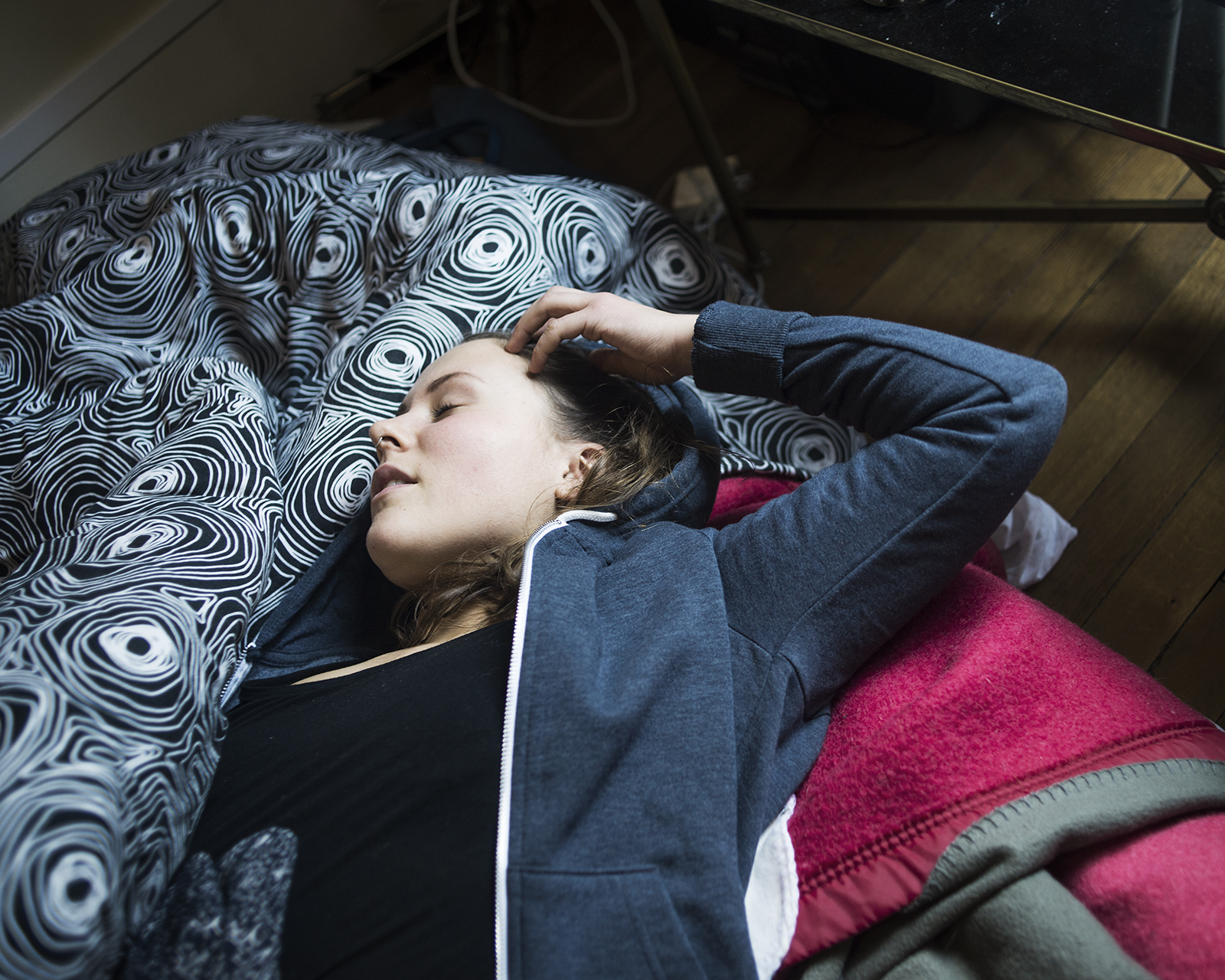
While in Paris, four Sami activists stayed in one bedroom of an apartment together. “As an indigenous person, you have an extra weight to carry, because you base so much of your life on nature, earth, land and water,» Sarakka says.
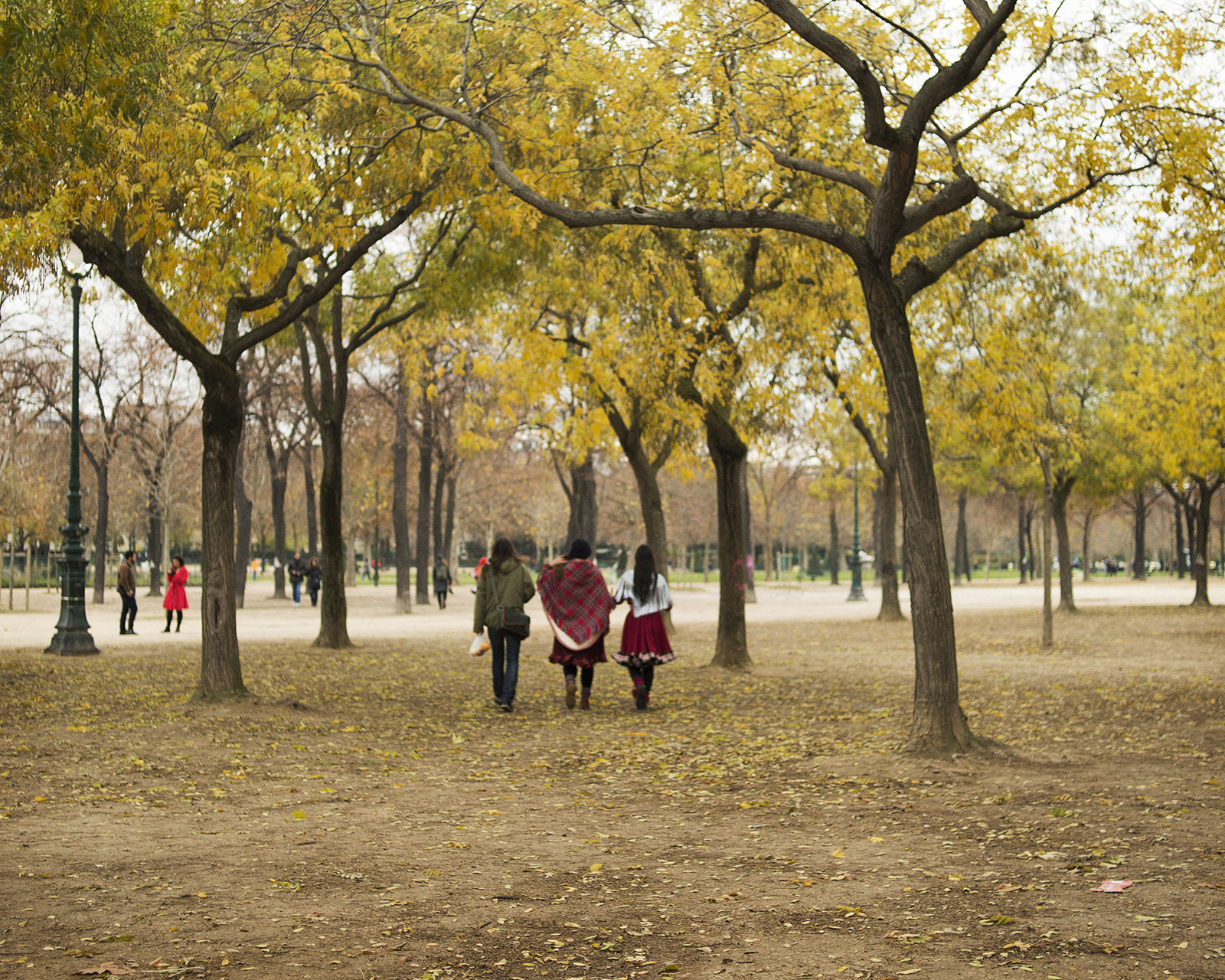
«Sápmi, it is our people who fall through the melting ice, our reindeer that are unable to graze as well in the winter, and our youth who care about the future,» Sarakka says. “But at the same time I am hopeful, of course—after seeing all the activism, love and spirit here. The power of the people!”











Sarakka Gaup: “In Paris I have met indigenous people from all around the globe who are crying out, shattered, and struggling for their lives. We are the first ones to go if the climate crisis keeps rising,” Sarakka says. She joined a protest in Paris to include the rights of indigenous people, including the Sami.
The Sami intended to drive a bus from Sweden to Paris until security tightened after the terror attacks on November 13. After the incident, some Sami were too afraid to travel to France, choosing instead to march in the climate protests in England. But others were still determined to attend the Paris talks.
Juvva brushes his teeth in the kitchen as he prepares for a long day in Paris.
Sarakka dressing up for a day at the climate talks in Paris. Sarakka and her Sami friends took pride in wearing their traditional dress, called gákti, to represent their heritage in France. Sarakka's father is from Finnmark, the ancestral Sami lands in the northern part of the country, but she grew up in her mother's native Oslo.
Sarakka taking a “selfie” in front of the Eiffel Tower. This was her first visit to Paris.
Although Sarakka's father is Sami, her mother is not, and Sarakka finds herself balancing between these identities. «I see myself as an activist just by being and living as I do—just the fact that I am from a minority group, and carry a very traditional Sami name, and have two cultures, two mother tongues,» Sarakka says.
Anne Karen, a Sami from Norway, asks for directions outside the Paris metro. She grew up in a family of reindeer herders in Norway's far north, and she is fascinated by other cultures.
Sami youths rally at a demonstration to support the inclusion of indigenous rights in the Paris climate agreement. The Sami were afraid of further violence after last month's attacks in Paris, and they were concerned when the marches they'd planned on attending were cancelled after France declared a state of emergency.
«It was difficult. But we are happy with what we've achieved,» says Max, center. «We're really quite numerous and well represented here.»
Sina Brown-Davis greets Sarakka after handing over a symbolic stone. The stone was an integral part of Run for Your Life, a relay race that began in Kiruna, northern Sweden, and aims to focus on Mother Nature in today's industrialized society. The stone was handed from one runner to another, including thousands of people running thousands of kilometers all the way from the Arctic area of Sweden to Paris.
While in Paris, four Sami activists stayed in one bedroom of an apartment together. “As an indigenous person, you have an extra weight to carry, because you base so much of your life on nature, earth, land and water,» Sarakka says.
«Sápmi, it is our people who fall through the melting ice, our reindeer that are unable to graze as well in the winter, and our youth who care about the future,» Sarakka says. “But at the same time I am hopeful, of course—after seeing all the activism, love and spirit here. The power of the people!”